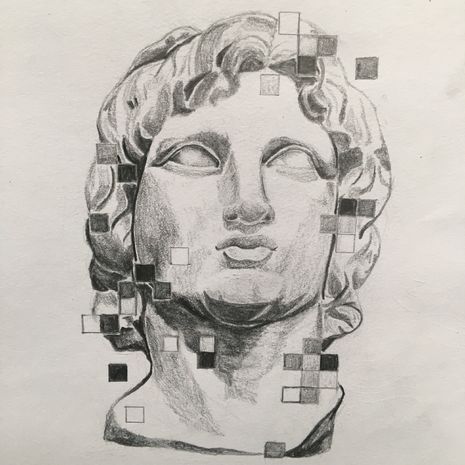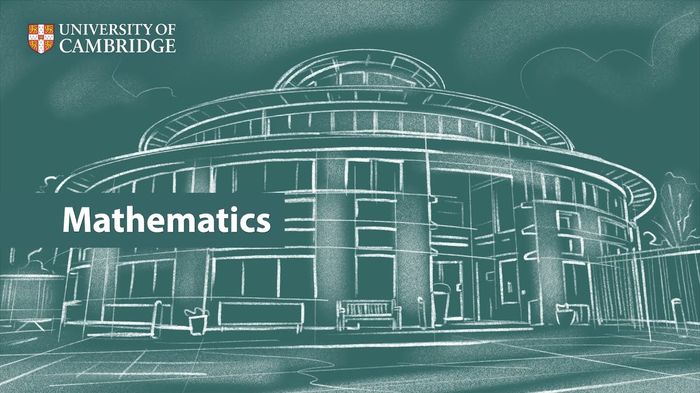Classically defined?
Features staff writer Emily Sullivan questions whether what we study defines us

When I tell people I study Classics I receive one of three reactions: “What do you want to do after University then?”, “What’s the use in that?”, or sometimes even “What is that?” The classical world has been part of my life since the age of eleven, and so these familiar questions have become somewhat of a running joke for me: each time I decide whether to reply seriously or not. Sometimes they will hear that learning ancient languages accesses the same part of the brain which one uses for coding, and that it’s important to understand the foundations on which our society was built and that I study Classics in order to constantly push myself. On days I’m feeling particularly funny, I will tell them that I am, in fact, a born-again Roman and the conversation normally ends there. Classics, I’m told, is not the only degree to elicit such a reaction. I have begun to wonder… to what extent does the degree we study define us?
“Subjects can be stereotyped, too”
It’s about the second question resorted to during Freshers' Week: “What do you study?” This is important, of course, as it is common ground that both you and said fresher may share at the same university. It might spark conversation about common interests, or you might tell them that you have a friend studying the same subject as them at Exeter. Again, the conversation dies. I don’t have an answer as to which conversation starter tells you more about a person — perhaps asking about their childhood pets might be more revealing. Subjects can be stereotyped, too. People studying modern languages might have heard: “But there’s Google Translate for that!”, just as aspiring lawyers have been asked if they are interested in their subject or just in making money. Perhaps this may be the case, but in my experience, people usually just choose the things they enjoy.
I have found it’s not students who question my choice of degree. It’s in conversations with random adults. It was the old man on my train last time. When he asked the same old question, I told him this: I said that we are lucky that people can still read Latin and Greek and translate the first texts written on democracy, philosophy, and the foundation of modern-day science and tragedies which Shakespeare himself mirrored in his works. I also said that Latin is still used in both the courtroom and the operating theatre. Not only is Classics interdisciplinary in its nature, including the studies of some of the greatest works of art, most pivotal military successes, and failures of Western history, but it enables me to study languages. My Latin grammar lessons in school taught me the concepts of possession (the genitive case), word order, and made my English sentences more precise. In hindsight, “I enjoy it” might have done the job.
Does what we study really say that much about us? It does in some ways. I love Classics. It’s rewarding when I know my ability to understand languages is improving. Cambridge requires its students to be crazy about their subject. I have met people who find spending their evening writing out lecture notes preferable to going out. A friend at another university studies French because they are obsessed with French food and originally wanted to know how to pronounce all the different types of pastries. They are now fluent in a language which is not their mother tongue. This, I might add, is not their defining personality trait, but simply the reason they fell in love with their subject.
So, yes, the subject a student studies will perhaps tell you a little about their background. A friend of mine chose to study occupational therapy as they had experienced treatment, for example. Another studies medicine because they want to help find a cure for cancer. Their subject is part of their story. Conversely, many young people choose their degree, without a direct route towards a career, but simply because they think they can do well if they enjoy it, and that’s OK. A lot of our future jobs have not been created yet; there will be opportunities to find something that sparks your interest, related to your degree subject or not.
“A lot of our future jobs have not been created yet”
A student once wrote that Classicists "will spend half their time studying a pointless subject, and the rest of their time getting furious at everyone around them for telling them it’s a pointless subject." Yes, reading this did make me smile. To them, I say that I once learned that Heraclitus’ view of humanity is that we are in a constant state of flux, just as a man can never step in the same river twice as the water is ever-changing. Everything else seems to change. Classics is my stability. However much one tries to justify or explain the importance of their degree, the only relevant information should be a personal response about what it has added to the student. Perhaps in a move forward we should laugh about such stereotypes. They do not define our personality or where our lives are headed — that is a decision we make for ourselves.
 Features / Should I stay or should I go? Cambridge students and alumni reflect on how their memories stay with them15 December 2025
Features / Should I stay or should I go? Cambridge students and alumni reflect on how their memories stay with them15 December 2025 News / Cambridge study finds students learn better with notes than AI13 December 2025
News / Cambridge study finds students learn better with notes than AI13 December 2025 News / Dons warn PM about Vet School closure16 December 2025
News / Dons warn PM about Vet School closure16 December 2025 News / News In Brief: Michaelmas marriages, monogamous mammals, and messaging manipulation15 December 2025
News / News In Brief: Michaelmas marriages, monogamous mammals, and messaging manipulation15 December 2025 Comment / The magic of an eight-week term15 December 2025
Comment / The magic of an eight-week term15 December 2025










